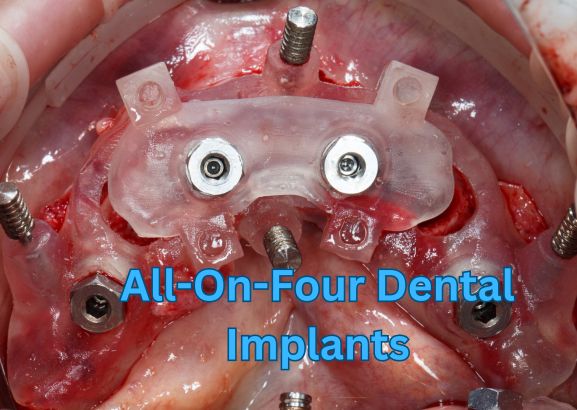Best Treatment for Missing Teeth: Smile with Confidence!
Last Updated on 6 months by DR. ALBIN SIPES
Dental implants are considered the best treatment for missing teeth, providing a long-lasting and natural-looking solution. They involve the surgical placement of artificial tooth roots into the jawbone, which then act as a stable foundation for the replacement teeth.
With a success rate of over 95%, dental implants offer a permanent solution that restores both functionality and aesthetics to the smile. Missing teeth can have a significant impact on a person’s confidence and overall oral health. Traditional options such as dentures and bridges may not provide the same level of stability and comfort as dental implants.
This blog post will explore the benefits of dental implants, the procedure involved, and why they are often the preferred choice for replacing missing teeth. So, let’s dive in and discover the best treatment for missing teeth: dental implants.
Introduction To Missing Teeth
Discover the best treatments for missing teeth to restore your smile and confidence. From dental implants to bridges and dentures, explore the options for a personalized solution that suits your needs and lifestyle. Say goodbye to gaps and hello to a complete, natural-looking smile.
| Missing teeth can have psychological impact on individuals. |
| Feeling self-conscious and avoiding social situations are common reactions. |
| Functional consequences include difficulty chewing and altered speech patterns. |
Dental Implants
| Treatment for Missing Teeth |
|---|
|
Dental implants are a popular choice for people with missing teeth. The procedure involves surgically inserting a small titanium post into the jawbone, which acts as the root of the missing tooth. A crown is then placed on top of the post to create a natural-looking replacement tooth. Insights into the procedure show that it is minimally invasive and has a high success rate. Patients can typically return to their normal activities within a few days. The long-term benefits of dental implants include improved oral health, better speech and eating abilities, and a boost in self-confidence. They are also a durable and permanent solution for missing teeth, with proper care and maintenance. |
Bridges
Bridges: Dental bridges are a common treatment for missing teeth. They come in several types, including traditional, cantilever, Maryland, and implant-supported bridges. Each type has its own pros and cons, such as cost, durability, and impact on adjacent teeth. Traditional bridges are the most common and affordable option, but they require the adjacent teeth to be filed down. Cantilever bridges are used when there are adjacent teeth on only one side of the gap. Maryland bridges are a conservative option that preserves the adjacent teeth, but they may not be as strong as other types. Implant-supported bridges are the most stable and long-lasting, but they involve a surgical procedure and are the most expensive.

Dentures
| Full Dentures | Partial Dentures |
|---|---|
| Full dentures are recommended when all teeth are missing or removed. They are custom-made to fit over the gums and stay in place with suction or adhesive. | Partial dentures are used when some natural teeth are still remaining. They are also custom-made and attach to the remaining teeth with clasps or precision attachments. |
Adjusting to dentures can take time and patience. It may feel uncomfortable or awkward at first, but with practice and proper care, dentures can become a comfortable and natural part of everyday life.
Removable Partial Dentures
Removable partial dentures are a top-notch treatment for missing teeth. These custom-made appliances are designed to fit comfortably in the mouth, providing a natural-looking solution that restores both functionality and aesthetics. Experience the benefits of this effective dental treatment today.
Removable Partial Dentures: Removable partial dentures are a popular choice for treating missing teeth due to their ease of use. They offer a convenient solution that can be easily removed and cleaned. These dentures are custom-made to fit comfortably in your mouth, providing a natural-looking smile. With proper care and maintenance, removable partial dentures can last for many years. To ensure their longevity, it is important to follow a few maintenance tips. Regularly clean your dentures using a soft-bristled brush and non-abrasive denture cleaner. Avoid using hot water, as it can warp the dentures. When not in use, store them in a denture cleaning solution or water to prevent them from drying out. Additionally, schedule regular check-ups with your dentist to ensure the dentures are fitting properly and to address any issues that may arise. Trust in removable partial dentures for a comfortable and convenient solution to missing teeth.Implant-supported Dentures
Implant-supported dentures offer stability and comfort for individuals with missing teeth. The implants provide a secure foundation for the dentures, preventing slippage and discomfort during daily activities. This treatment option also promotes proper chewing and speaking abilities, enhancing overall quality of life. In terms of cost considerations, while the initial investment may be higher than traditional dentures, the long-term benefits often outweigh the upfront expenses. Additionally, implant-supported dentures can minimize the need for frequent adjustments and replacements, leading to potential cost savings over time.
Bone Grafting For Dental Implants
Bone grafting is essential for dental implants to ensure successful placement and stability. It is necessary when there is insufficient bone mass to support an implant. The recovery process involves allowing time for the graft to integrate with the existing bone. Proper care and follow-up appointments are crucial for monitoring healing and implant success.

Choosing The Right Treatment
When choosing the best treatment for missing teeth, consulting with a specialist is crucial. Compare different options available to make an informed decision. Consider factors like cost, durability, and aesthetic appeal. Dental implants are a popular choice due to their natural look and feel. Dentures provide a more affordable alternative but may require regular maintenance. Dental bridges offer a non-invasive option that fills the gap left by missing teeth. Each treatment has its own benefits and considerations, so it’s essential to discuss with a dentist to determine the most suitable option for your specific needs.
Post-treatment Care
After receiving the best treatment for missing teeth, remember to prioritize daily oral hygiene. Brush and floss regularly to maintain oral health. Additionally, schedule regular dental check-ups to monitor your progress and address any concerns promptly. Follow your dentist’s recommendations for post-treatment care to ensure the best outcomes. Remember, good oral hygiene is essential for long-term dental health.

Success Stories
Achieving a full, beautiful smile is possible with the best treatment for missing teeth. Success stories abound from individuals who have undergone dental implant procedures that have restored their confidence and oral health. Say goodbye to gaps and hello to a bright, healthy grin.
| Success Stories |
|
Frequently Asked Questions
What Is The Best Option For Missing Teeth?
Dental implants are the best option for missing teeth. They provide a natural look and feel, improve chewing and speech, and are long-lasting.
What Is The Cheapest Option To Replace Missing Teeth?
The cheapest option to replace missing teeth is dentures. They are removable and can be made to fit your mouth. However, they may not be as comfortable or natural-looking as other options. It’s important to discuss all options with your dentist to find the best solution for you.
How Can I Cover My Missing Teeth?
To cover missing teeth, consider options like dental implants, bridges, and dentures for a natural-looking smile.
Which Treatment Plan Is The Best Option For A Missing Tooth?
The best treatment option for a missing tooth is a dental implant. It provides a long-lasting solution that looks and functions like a natural tooth. Dental implants are placed in the jawbone and topped with a custom-made crown. They offer stability, durability, and preserve the integrity of neighboring teeth.
Conclusion
The best treatment for missing teeth depends on individual needs and preferences. Whether it’s dental implants, bridges, or dentures, consulting with a qualified dentist is crucial. Understanding the options and their long-term benefits can help make an informed decision for restoring a confident smile and optimal oral health.


